Introduction to the College of Architecture and Engineering
The College of Architecture and Engineering currently comprises three departments: Civil Engineering, Architecture, and Building Environment and Energy Application Engineering. It hosts five research institutes: the Institute of Structural Evaluation, Reinforcement, and Green Building Materials, the Institute of New Energy Technologies and Disaster Protection, the Institute of Intelligent Sensing Technology for Transportation Infrastructure, the Institute of Green Building and Low Carbon Research, and the Institute of Digital Intelligence in Architecture. Additionally, the College has established several educational and research platforms, including the Zhejiang Province Modern Green Building Industry Academy, the Zhejiang Province Smart Construction and Green Building Experimental Teaching Center, the Zhejiang Province Smart City Green Building Practice Education Base, the Resilient City Lifeline Engineering Smart Protection Technology Research Center in Wenzhou, the Wenzhou Carbon Peak and Carbon Neutrality Research Center in the Building Sector, and the Wenzhou Sustainable Development Talent Training and Industry-Education Integration Base.
The College offers three undergraduate programs: Civil Engineering, Architecture, and Building Environment and Energy Application Engineering. Among these, Civil Engineering is recognized as a provincial-level first-class program and an emerging specialty program in Zhejiang Province. It has been approved as a pilot project for engineering education program certification and is classified as a first-class discipline in Zhejiang Province. The Architecture program is noted as a distinctive and advantageous program at the municipal level in Wenzhou, while Building Environment and Energy Application Engineering is a newly established program in Wenzhou.
The College currently employs 64 staff members, including 52 full-time faculty members. Among them, 34 are professors or associate professors (or senior engineers), with 26 holding doctoral degrees and one being a provincial young and middle-aged academic leader. Graduates of the College predominantly find positions in major and medium-sized design, construction, supervision, and consulting firms, as well as government agencies and institutions related to housing, construction, and municipal services. In the past three years, over 100 graduates have pursued master’s or doctoral degrees at prestigious domestic and international universities such as Xi'an University of Architecture and Technology, Nanjing University of Aeronautics and Astronautics, and the University of Sydney. The students have achieved notable success in competitions, with multiple awards in national and provincial student innovation projects, and first and second prizes in national and provincial structural design competitions, BIM application skills contests, and the Zhejiang Province Rural Revitalization Creative Competition.
Major: Civil Engineering
The Civil Engineering program is recognized as a provincial-level first-class program, an emerging specialty program for ordinary undergraduate institutions during the "13th Five-Year Plan," a key program at the College level, and a pilot program for applied development. It offers several provincial-level first-class courses and has an innovative teaching team in Civil Engineering in Wenzhou. The program includes three specializations: Building Engineering, Transportation Civil Engineering, and Engineering Cost.
The program targets the forefront of international civil engineering academia and aligns with national and regional strategic needs. It focuses on four key areas: underground space development technologies, full lifecycle engineering structure operation and maintenance technologies, critical technologies for lifeline engineering safety, and low-carbon artificial environment creation technologies. The program also emphasizes interdisciplinary research integrating civil engineering with smart manufacturing, artificial intelligence, and the Internet of Things, aiming to develop a multidisciplinary research model. It seeks to provide robust theoretical and technical support for pioneering technologies, disruptive innovations, and critical advancements in emerging fields such as smart cities, resilient cities, and intelligent construction and equipment.
Training Direction:
The program aligns with industry development trends and national and local economic needs, creating a comprehensive theoretical and practical teaching system. It aims to cultivate professionals who meet the needs of construction and economic development, possessing solid foundational theories, broad professional knowledge, strong practical and innovative capabilities, and basic training for becoming registered engineers. Graduates are prepared to undertake various tasks in civil engineering projects, including design, construction, management, research, investment, and development, across building, road, bridge, geotechnical, and underground engineering fields. They are trained to be high-level application-oriented talents with strong engineering qualities, innovative awareness, practical abilities, sustainable development potential, and a certain international perspective.
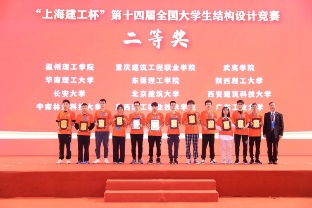
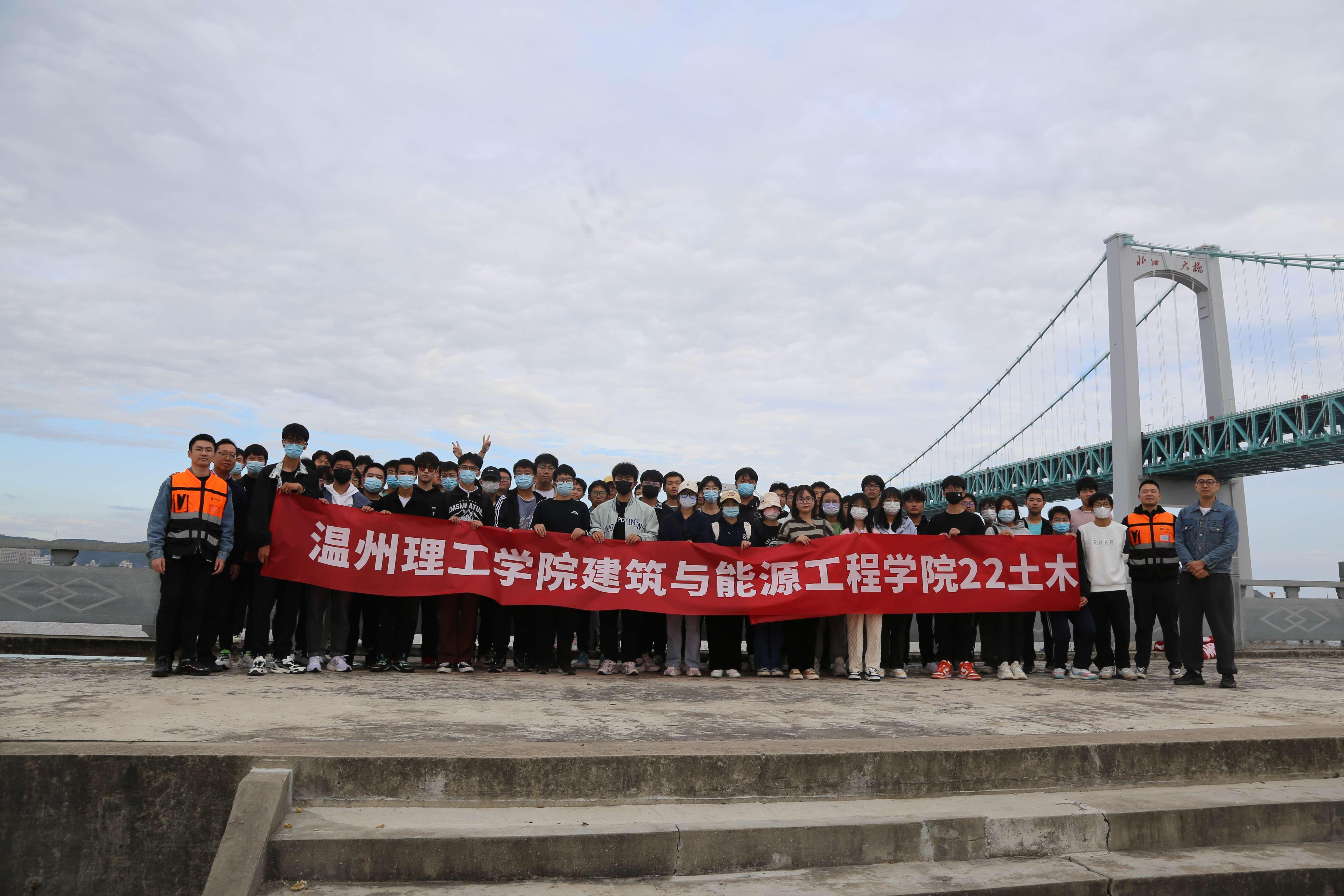
Core Courses:
Surveying, Theoretical Mechanics, Material Mechanics, Structural Mechanics, Engineering Economics, Building Architecture, Transportation Engineering, BIM Technology Application, Project Management, Innovation and Entrepreneurship Competitions and Practical Training, etc.
Career Directions:
• Civil Servants and Research/Teaching Institutions: Management departments in construction and municipal transportation, higher education institutions, research institutes.
• Construction and Supervision Management Units: Investment and development companies in construction and transportation, real estate development companies, etc.
• Design, Planning, and Consulting Units: Design and surveying planning enterprises, functional departments in architectural and municipal agencies, cost consulting firms.
• Engineering Technology Units: Construction and municipal engineering companies, surveying and mapping enterprises, structural evaluation and reinforcement companies, engineering testing firms.
• Other Emerging Industries: Building software development companies, green building materials manufacturing, etc.
Major 2: Architecture
Since its inception in 1984, the Architecture program has consistently maintained its focus as a technology-oriented discipline, grounded in practicality and evolving with the times. It has been recognized as a distinctive and advantageous program in Wenzhou and an applied construction program at Wenzhou University of Science and Technology. The program, in collaboration with Middlesex University in the UK, has established the first Sino-foreign dual-degree accredited Architecture program in the province. It boasts several provincial-level first-class courses and has been involved in provincial-level teaching reform projects during the "13th Five-Year Plan" and "14th Five-Year Plan" periods. In the past three years, students have won over a hundred provincial-level disciplinary competition awards, demonstrating the program's substantial achievements in talent development.
Following the 19th National Congress of the Communist Party of China, the Architecture program has aligned itself with the rural revitalization strategy, exploring new directions for empowering rural areas through architecture and emphasizing practical training for students. In 2021, to support the high-quality leap in development across 26 mountainous counties and to contribute to the creation of a common prosperity demonstration zone, the program led the establishment of the Wenzhou University of Science and Technology Taishun Research Institute, facilitating deep collaboration between the university and local communities and integrating industry with education. In 2022, leveraging Wenzhou's role as a key city for promoting green buildings and a new hub for innovative development in new energy, the program has adopted a development direction centered on "green, low-carbon, rural, and cultural" themes. Compared to similar programs in the province, this program remains at the forefront of modernization and transformation while deeply engaging in local service.
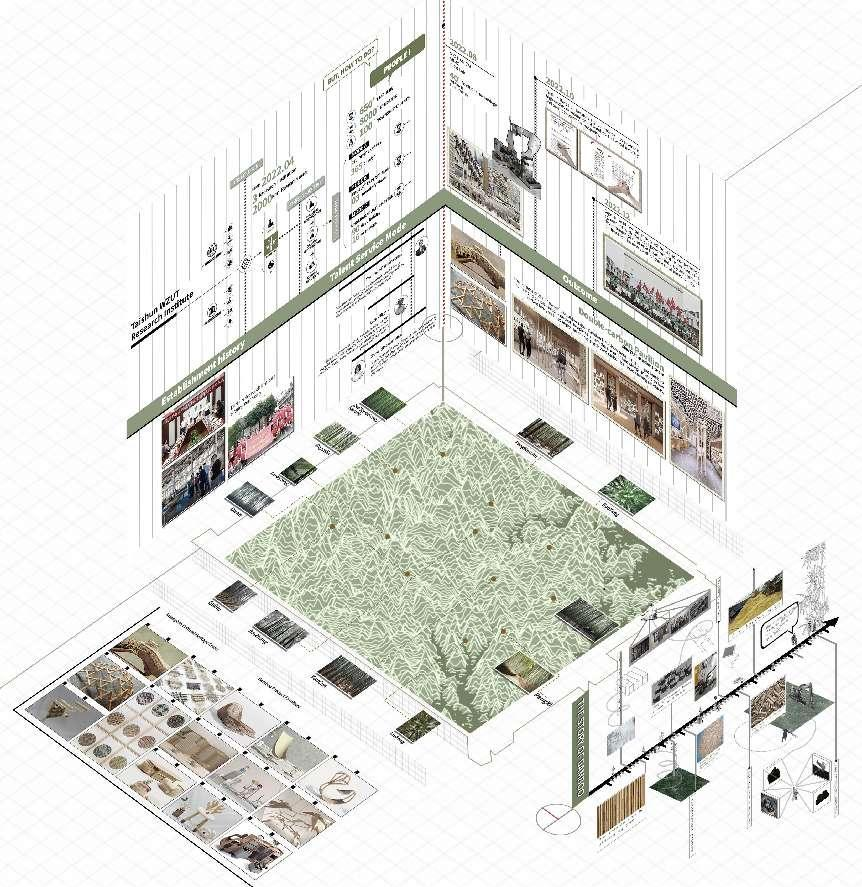
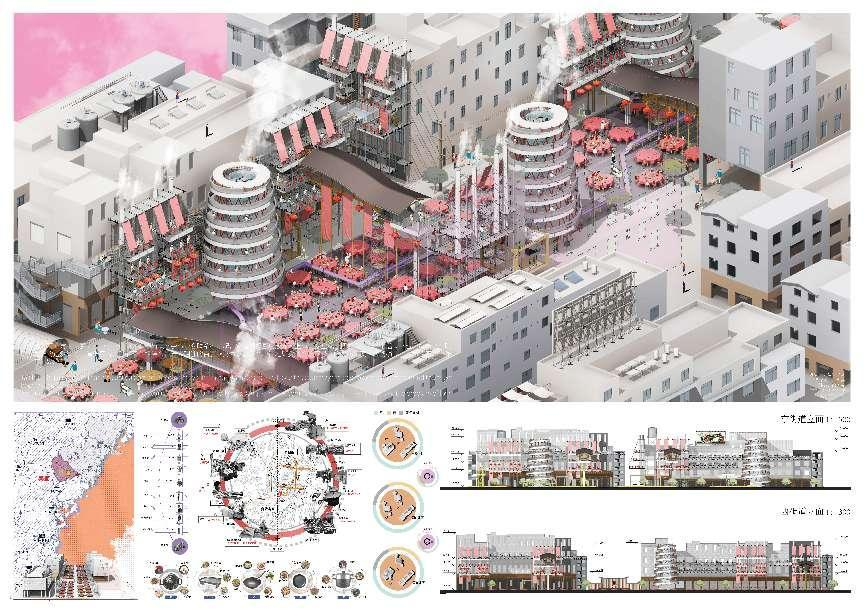
Training Direction:
This program is grounded in the requirements of new engineering disciplines and guided by the spirit of Zhejiang Province's "Two Pioneers" strategy. It addresses the urgent need for architectural talents in the modernization of urban and rural areas in Wenzhou and the green development of common prosperity. The educational focus is on "refined design, strong practice, and concentrated innovation," with a particular emphasis on key areas such as green building, intelligent construction, rural revitalization, and architectural culture. The program aims to cultivate high-quality application-oriented talents in architectural intelligence and manufacturing who possess a broad and diverse knowledge base, strong design abilities, and innovative awareness, and who can serve various architectural design firms, government departments, and grassroots construction units.
Core Courses:
Architectural Design, Architectural Fine Arts, Architectural Photography, Building Materials, Architectural Construction, Computer-Aided Design, History of Architecture (Domestic and International), Interior Design and Decoration Materials, Landscape and Environmental Design, Parametric Architecture Design, Ecological and Sustainable Architecture, Digital Architecture Technology and Intelligent Construction, BIM Application Technology, etc.
Career Directions:
• Civil Servants and Research/Teaching Institutions: Management departments in construction and municipal services, higher education institutions, research institutes.
• Construction and Supervision Management Units: Investment and development companies in construction, real estate development firms, etc.
• Design Units: Local architectural design research institutes, renowned architectural design firms, independent designers, etc.
• Other Related Industries: New materials, green new energy, software development, multimedia creation, and design-related fields.
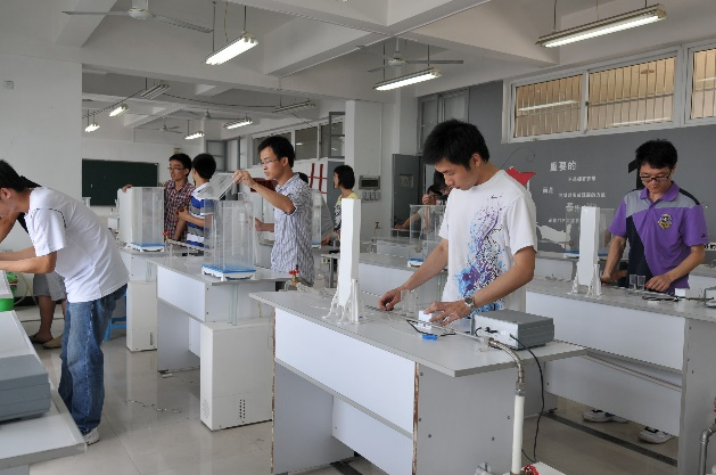
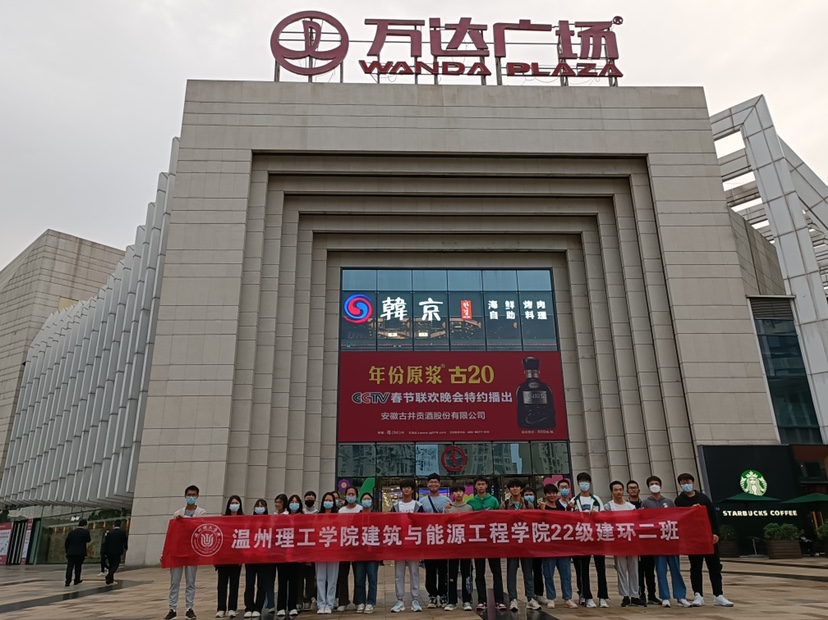
Major 3: Building Environment and Energy Application Engineering
The Building Environment and Energy Application Engineering program focuses on creating comfortable, healthy, and precise artificial environments in buildings, high-end industrial manufacturing, transportation vehicles, and various enclosed spaces. It aims to meet the needs of modern life and production. Established as a new program in Wenzhou in 2021, it closely aligns with national and industrial strategic demands, concentrating on the development directions of "green buildings, new energy, and intelligent construction." The program emphasizes collaborative innovation and application centered around the green building industry and actively develops a talent and intellectual supply system aimed at supporting the green building industry's growth. This approach creates a new ecosystem for industry-education integration that delivers high-quality services from industry needs to industry development.
Training Direction:
The program is based on the national "dual carbon" development strategy and addresses the needs for energy conservation, emission reduction, and energy transition in buildings. It focuses on integrating humanities with natural sciences and combining theoretical knowledge with practical skills. The goal is to cultivate high-quality, application-oriented talents who can adapt to the low-carbon economy and sustainable social development needs of the new era. Graduates will be well-rounded in moral, intellectual, physical, aesthetic, and labor aspects, with a solid theoretical foundation and engineering knowledge in areas such as building environment control systems, building heating and cooling systems, building equipment system automation, and low-carbon energy-saving technologies. They will also possess innovative awareness, practical skills, lifelong learning abilities, and an international perspective.
Core Courses:
Fluid Mechanics, Heat Transfer, Engineering Thermodynamics, Building Environment Science, Air Conditioning Engineering, Heating Engineering, Ventilation Engineering, Heating and Cooling Source Engineering, Building Water Supply and Drainage Engineering, Principles of Automatic Control and Building Equipment Automation, BIM Technology and Application, Intelligent Building Technology, Green Building and Sustainable Development, etc.
Career Directions:
1. Administrative Management: Work in relevant administrative management and policy research positions in departments such as development and reform, construction, municipal services, transportation, government affairs, and ecological environment.
2. Research and Teaching: Engage in teaching and research at universities and research institutes in the fields of Building Environment and Energy Application Engineering, Architecture, Civil Engineering, Environmental Science, Energy and Power Engineering, Engineering Thermophysics, Automatic Control, and other related disciplines.
3. Technical Application: Work in modern industries related to buildings, equipment, energy, and municipal services, focusing on industrial and civil building environment control technologies. This includes operating and managing public facility systems such as HVAC, gas supply, and building water supply systems.
4. Design and Planning: Engage in the design and planning of industrial and civil building systems, including heating, ventilation, air conditioning, centralized heating and cooling systems, medium and small-scale refrigeration systems, building automation systems, and indoor and outdoor water supply, gas, and fire protection engineering.
5. Operations Management: Manage the planning, property management, construction management, and operational management of large buildings' HVAC, refrigeration, heating, and building automation systems in real estate development, hotels, shopping malls, and residential communities.
TEL:+86 577-86680517
Email: ieac@wzut.edu.cn
Add: No.337, Jinhai Third Road, Economic & Technological Development Zone, Wenzhou,Zhejiang Province, China
